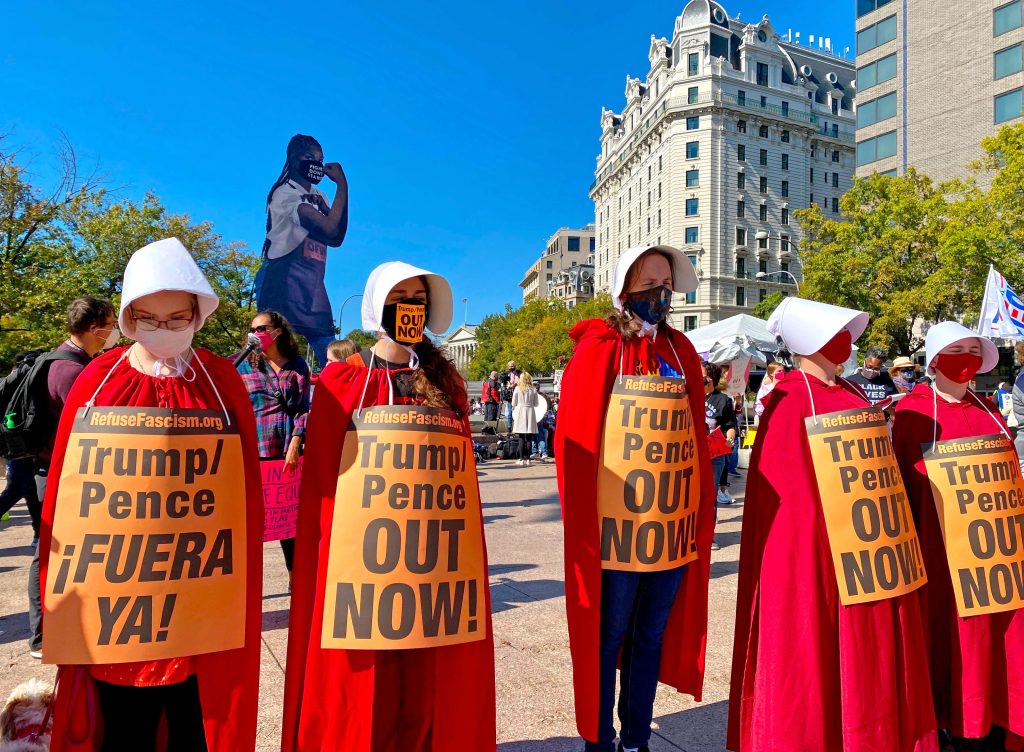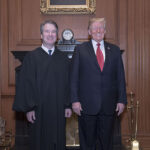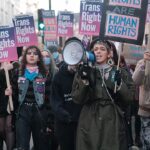Blog Post
How the Left Helped to Overturn Roe v. Wade
By Jonathon Van Maren
In the wake of the U.S. Supreme Court decision overturning Roe v. Wade, conservative wags have engaged in some cheery historical speculation about the events leading up to this occasion. One noted that the first domino to fall in the chain leading to Roe’s overturn was when Seth Myers mocked Donald Trump at the 2011 White House Correspondents’ Dinner, prompting him to run for president. Another observed that without the discovery of Hillary Clinton’s emails on Anthony Weiner’s laptop, FBI director James Comey would not have released the investigation letter that handed Trump a razor-thin win in key states—which of course led to the selection of three Supreme Court justices, all of whom voted to kill Roe.
Christians, of course, see the workings of divine providence underpinning it all. But there is one aspect of this strange season of “House of Cards” that has been largely ignored in Roe’s journalistic autopsies. As the progressive Left has grown increasingly radical on abortion and other social issues, those perceived as a threat to the ever-expanding sexual revolution have been viciously targeted. This has resulted in polarization and blowback—and the radicalization of several key political players in this saga.
The first is Senator Mitch McConnell, who has not received the credit he deserves for the fall of Roe v. Wade (although he is pro-choice, he opposes late-term abortion and celebrated the decision). McConnell was a freshman senator from Kentucky when Senate Democrats launched a brutal attack on President Reagan’s Supreme Court nominee, Robert Bork. Bork was a highly respected jurist and intellectual in conservative circles, but Senator Ted Kennedy claimed in an infamous tirade that Bork’s accession to the Court could turn the United States into a hellscape:
Robert Bork’s America is a land in which women would be forced into back-alley abortions, blacks would sit at segregated lunch counters, rogue police could break down citizens’ doors in midnight raids, schoolchildren could not be taught about evolution, writers and artists would be censored at the whim of government, and the doors of the federal courts would be shut on the fingers of millions of citizens for whom the judiciary is often the only protector of the individual rights that are the heart of our democracy.
In an unprecedented politicization of the nomination process, Bork’s candidacy was killed, and Anthony Kennedy took his place. Kennedy would vote to save Roe v. Wade and authored the 2015 Obergefell opinion, imposing same-sex marriage on all 50 states in 2015. McConnell learned his lesson. If a Democratic president ever “sends up somebody we don’t like” when the GOP controlled the Senate, he said after Bork’s savage treatment, Republicans would return the favor. He got his chance, and his decision to hold Antonin Scalia’s seat open for almost a year—denying Obama the chance to fill the seat and ensuring Neil Gorsuch’s eventual confirmation after Trump’s election—is one of the gutsiest political moves in recent memory. When Ruth Bader Ginsburg died, McConnell called Trump immediately and told him that despite the tight timeline, Trump would be filling the vacancy—with Amy Coney Barrett. And so it was.
The same is true for President Donald J. Trump. There are good reasons that scarcely a single social conservative or pro-life leader backed his candidacy early on—only when faced with the stark choice between Hillary Clinton and the LGBT-supporting megalomaniac billionaire did Trump earn the endorsement of several high-profile anti-abortion groups (who, with the help of allies such as Mike Pence, successfully extracted commitments on Supreme Court justices and other agenda items). But many—including myself—were convinced that Trump would do little for the pro-life movement. One veteran activist told me that the biggest Planned Parenthood fundraiser he had ever protested had been at Trump Tower in New York City. But not only did Trump follow through, he consistently went above and beyond.
There are many reasons for this, of course (some of which I’ve detailed before). However, I have long suspected that there is another reason for Trump’s willingness to antagonize his former friends on the pro-abortion side of the political spectrum. The day after attending Trump’s inauguration in January 2017, I attended the Women’s March in Washington, D.C. as a reporter. It was the largest crowd I had ever seen—nearly 500,000 people packing the streets shoulder to shoulder. The rage directed at Trump was palpable. Hundreds of signs read “F*** Trump.” A sea of others addressed him with a range of epithets; one, confusingly, showed Trump fellating a triumphant feminist. The speakers were furious—Michael Moore, Scarlett Johansson, and Madonna, who fantasized about blowing up the White House.
READ THE REST OF THIS COLUMN AT THE EUROPEAN CONSERVATIVE








